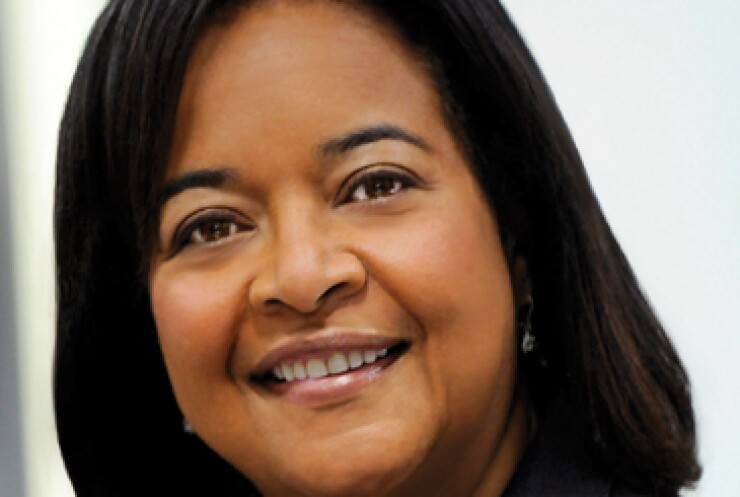
Teresa Bryce Bazemore, who held a front-row seat during the bank liquidity crisis this year as president and CEO of the Federal Home Loan Bank of San Francisco, plans to retire when her term expires in 2024, citing personal reasons.
The San Francisco bank's board chose not to renew Bazemore's contract after she asked to retire in 2025, though her contract expires in 2024. The board instead initiated a search for a new CEO, said Simone Lagomarsino, the board's chairman, who also is president and CEO at Luther Burbank Savings.
Bazemore "indicated that, due to personal and other considerations, she would like to retire in March 2025," Lagomarsino said in a
The decision followed "extensive deliberation and discussion" about the Home Loan bank's long-term goals, including "the implementation and integration of strategic changes that may arise from the 'FHLBank System at 100' review currently being conducted by the Federal Housing Finance Agency," Lagomarsino said in the release. "The board recognized the critical importance of a CEO who would be engaged for the next several years to lead the organization forward and implement a vision and strategy to align with the outcome of the FHFA's review."
The San Francisco Home Loan Bank played a central role in the bank liquidity crisis in March, when it served as lender of next-to-last-resort to
Last year, Bazemore earned $2.4 million, which included a base salary of $910,000 and other incentive compensation. When she joined the San Francisco Home Loan bank in 2021, she received a $100,000 signing bonus. Her employment agreement provides for 12 months of severance pay, equal to her base salary, plus other awards, according to the Home Loan banks' combined
Last year, the Federal Housing Finance Agency that oversees that Home Loan bank system,
Separately, Fitch Ratings on Thursday downgraded certain ratings of the Federal Home Loan banks of Atlanta and Des Moines citing the "high and growing general government debt burden," of the U.S. government. The ratings actions followed the downgrade of the U.S. to 'AA+,' from 'AAA.'
The Home Loan banks are bank cooperatives that provide low-cost funding to 6,500 members including banks, insurance companies and credit unions. Created in 1932 to bolster housing during the Depression, the system incentivizes banks to buy mortgage-backed securities and agency bonds that can be pledged as collateral in exchange for liquidity.






